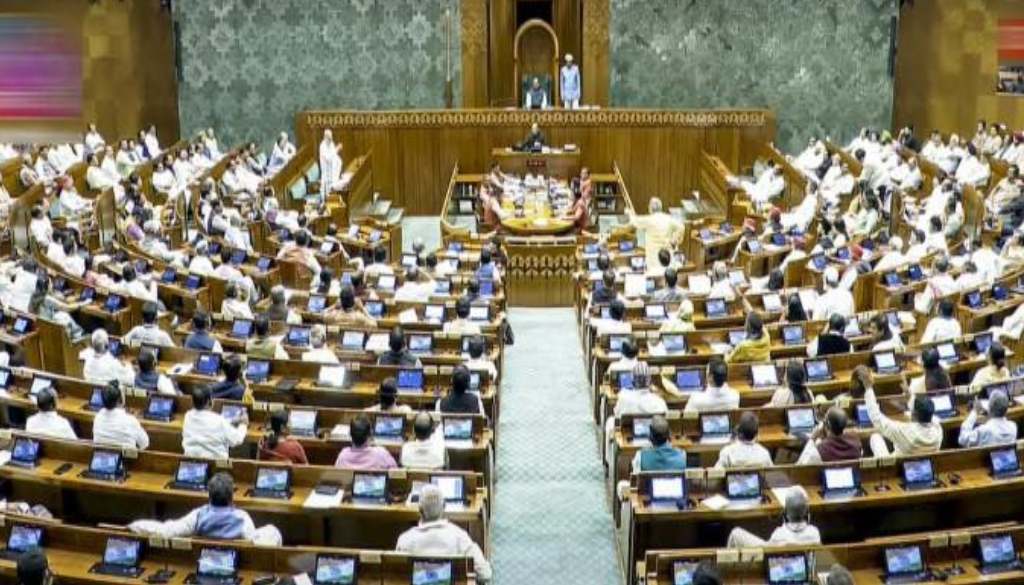Lok Sabha Passes Waqf Amendment Bill After Intense 12-Hour Debate

New Delhi, 3rd April 2025: After a marathon 12-hour discussion, the Lok Sabha passed the Waqf Amendment Bill early Wednesday morning. A total of 520 Members of Parliament (MPs) participated in the voting, which took place at 2 AM, with 288 voting in favor and 232 opposing the bill. The bill, named UMEED (Unified Waqf Management Empowerment, Efficiency, and Development) by Minority Affairs Minister Kiren Rijiju, is now set to be presented in the Rajya Sabha today.
Owaisi Tears Bill, Calls It an Insult to Muslims
The bill sparked intense debate, with AIMIM MP Asaduddin Owaisi strongly opposing it. In a dramatic gesture, he tore a copy of the bill in the House, stating, “This bill is meant to humiliate Muslims. I tear the Waqf Bill like Gandhi.”
Amit Shah Defends Bill, Says “No Non-Islamic Will Come in Waqf”
Countering the opposition, Union Home Minister Amit Shah dismissed concerns that the bill would interfere with Waqf properties. “There is no provision allowing non-Islamic entities into Waqf. Minorities are being misled for vote bank politics,” he stated.
Shah further emphasized the bill’s purpose, stating, “The Waqf bill is not for theft but for the poor. Some members say minorities will not accept it—what are you threatening, brother? This is a law made by Parliament, and it must be followed.” He also explained the concept of Waqf, adding, “Waqf is an Arabic word that means the donation of property for religious purposes in the name of Allah. Such donations can only be made for property that one legally owns.”
Rijiju: “Without the Amendment, Even Parliament House Could Have Been Claimed”
Defending the bill, Minority Affairs Minister Kiren Rijiju warned that the lack of amendments could have led to absurd claims over national assets. “Had we not brought this amendment bill, even the building we are sitting in could have been claimed as Waqf property,” Rijiju stated.
He also criticized the 2014 decision of the previous government, saying, “In March 2014, just days before the elections, 123 prime properties were transferred to the Delhi Waqf Board. Why the urgency? You thought it would get you votes, but you still lost the election.”
President’s Rule in Manipur Passed After Waqf Bill Vote
After the passage of the Waqf Amendment Bill, Home Minister Amit Shah proposed imposing President’s Rule in Manipur, citing the ongoing crisis in the northeastern state. The proposal was passed by a voice vote in the Lok Sabha.
History of the Waqf Act
The Waqf Act was first introduced in 1954 to regulate Waqf properties in India. The law underwent multiple amendments over the decades, with a major revision in 1995. Rijiju pointed out that no one had questioned its constitutionality back then, yet the same provisions are being labeled unconstitutional today.
As the bill moves to the Rajya Sabha, the debate over Waqf property management and minority rights is expected to continue.






